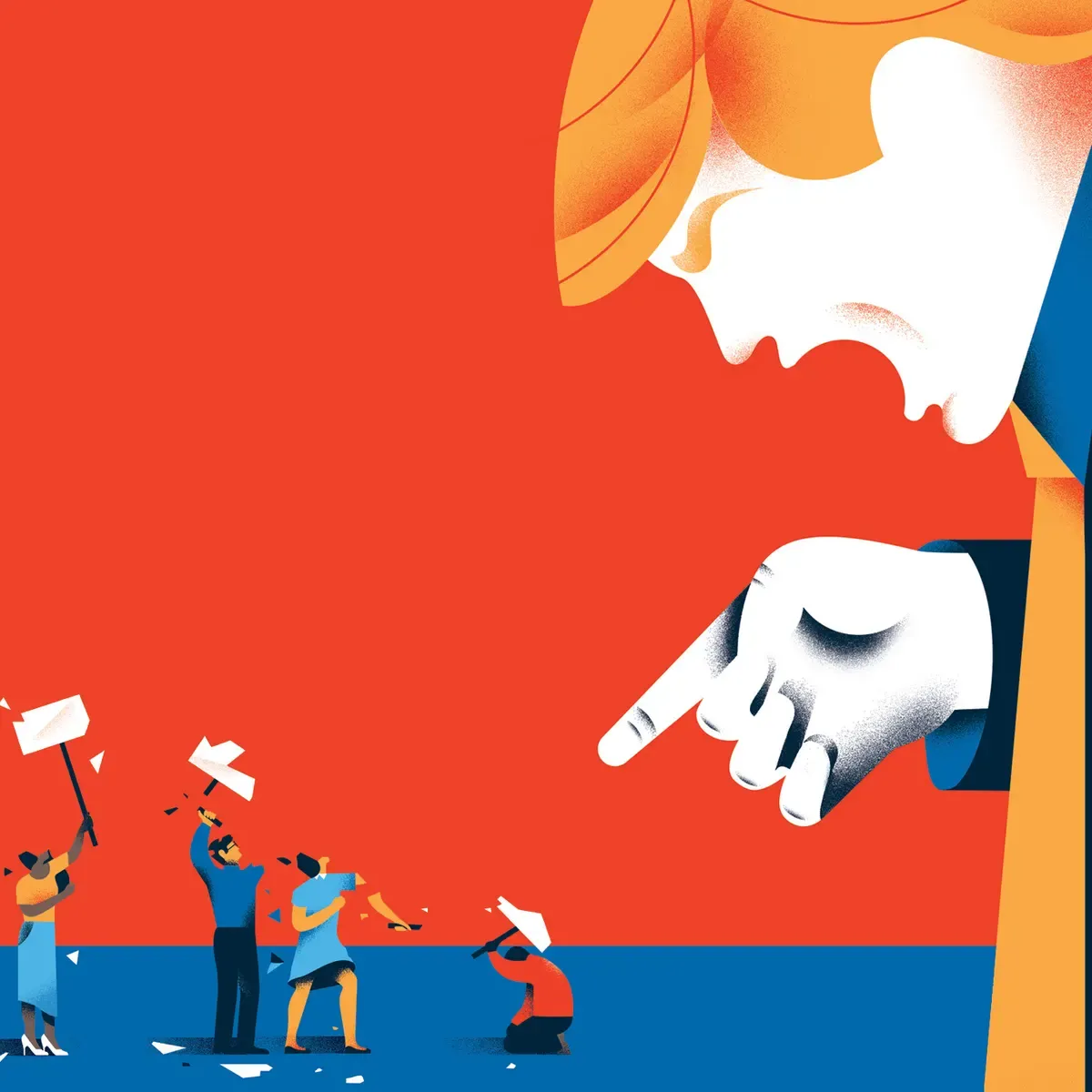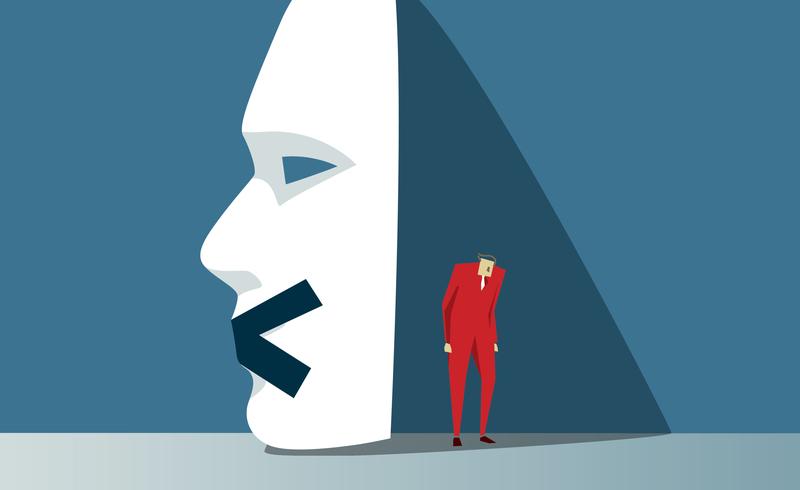I have already written on this subject in short note on Facebook and I thought I would give myself a break. That I would go back to texts that focus on things that some of you don't want to read about, some of you read compulsively, some of you don't know that you wanted to read it, and some of you don't give a damn about me. Unfortunately, when I once again see someone use the term "political correctness" in every possible context that is supposed to explain, for example, the fact that Spotlight won the Oscar for Best Picture, something inside me snaps.
The following statement may contain words commonly considered to be uncensored. This is just to warn you. Just like that, in plain, human terms, I'm getting pissed. My blood is pouring out of me, squeezing me tightly in the chest because of people's stupidity, ignorance and a few other things that I don't want to list, because very often comments about political correctness in the context of the topic of changing something in pop culture that is related to minorities, for example, are posted by people who are trying their best to be considered intellectual amoebas. I understand what this is due to, after all, it's just easier to write that way, because two words immediately have a context, everyone knows what it's about, they can start nodding or disagreeing with it. The thing is that in many cases political correctness is not what the authors want it to be.
It has gone more or less the same way as "criticism". In terms of connotation. Criticism originally meant discussion, it didn't just involve someone criticizing us, meaning, for example, pointing out our mistakes, complaining because he's a dick - this word will come up a few times here, because it's a key word. It was about analyzing both the good and bad sides of an issue. Unfortunately, currently, when someone criticizes, he usually clings ergo he is the aforementioned prick. Political correctness also means something completely different. Whether we are talking about film, comics, books or finally politics.
Then what is political correctness?
Contrary to popular belief and the rhetoric being pushed, it's not at all about cramming black characters into a movie or turning popular comic book characters into homosexuals. Let's start with definitions. A few, to be clear.
Is a term used to describe language, policies, or measures that are intended to avoid offense or disadvantage to members of particular groups in society. Since the late 1980s, the term has been used to describe a preference for inclusive language and avoidance of language or behavior that can be seen as excluding, marginalizing, or insulting to groups of people disadvantaged or discriminated against, particularly groups defined by ethnicity, sex, gender, or sexual orientation. In public discourse and the media, the term is generally used as a pejorative with an implication that these policies are excessive or unwarranted - Wikipedia
Another one from my native - polish - dictionary:
Avoiding statements or actions that could offend a minority, such as an ethnic, religious or sexual minority.
And one that may not be a definition, but I like it because it sums up what this political correctness really is. The author of this one is Neil Gaiman:
I started imagining a world in which we replaced the phrase “politically correct” wherever we could with “treating other people with respect”, and it made me smile.
In short, first of all, political correctness refers primarily to language and discussion, and secondly, it means more or less what I wrote at the beginning, don't be a dick. Simply put. So that we don't refer to homosexuals per fag, so that Chris Rock doesn't hear that when he appears on stage, he is an asphalt - common in polish - and a nigger. In the same way that I wouldn't want to hear that I'm a fucking white man. Political correctness is not censorship, an attempt to force something on us, or an interference with freedom. It is a way to address others with respect, to realize that the world is not just white or black. Because let's remember that our freedom ends where the other person's freedom begins, and saying that I can, because there is freedom of speech, etc. does not justify someone being offended by us. There are paragraphs for this, by the way, but after all, the law always sides with Kali, or at least according to him it should.

By the same token, nowhere is it said that this famous stuffing of gays and blacks into the film is related to political correctness. No, and even if it was, Sara Pichelli and Brian Michael Bendis, who made Spider-Man Miles Morales, did not do so because they thought hey, there are not enough black superheroes let's make Spider-Man a black man, because that would be politically correct. They did that because why shouldn't the costume be donned by Miles. What is it that stands in the way? It doesn't matter how much the "warriors for the one and only right world" will spell reality, but they have to accept that the audience of comic books is not only heterosexual white gimbazoids from Poland and the US. Besides, the appearance of a homosexual hero does not imply political correctness, but is a manifestation of something completely different. Specifically, the need for representation. Such a need exists precisely in relation to what I wrote about the world and dissent - and it pains me to have to add such obviousness. Comics, film, literature, games and so on are art, a creative act, or basically the result of the act of creation, which can be modified according to one's needs. Especially when we are talking about characters that are invented characters - interestingly, these are the ones that are very often defended in any discussion using the argument that this is, after all, how it has always been. This is extremely interesting and makes me think. Intense, but I still can't fathom what the defenders are talking about, and even at times when the creator of the character himself says that he doesn't mind if his character in the new film adaptation becomes a pink pony.
Black Adolf Hitler
If I hear that Thor cannot be a woman because he has always been a handsome white blond, I look for rational arguments in this sentence. Because to say that it has always been so is not an argument. I could say that about myself, it was always the case that I was white. Although I wouldn't mind being played by Denzel Washington, for example. There is some danger in the fact that a filmmaker can fall into what I might call "the trap of political correctness". For example, when in a film dealing with slavery, the characters try to limit themselves in the sphere of language and speak in such a way as not to offend anyone. This is a mistake that further falsifies history and instead of helping the minority only harms it. But again, it all depends on the context, on what happens when we make specific decisions about the choice of cast, for example. What our motivations are and what we want to achieve.
Every era has spawned its own contradictions, but the end of the 20th century is particularly pathetic. We have lost our courage, our willingness to take risks, our heart. Listen, believe me, when we say it and say it sincerely, it will appeal to women, it will appeal to blacks, browns, yellows, greens, reds and purples, and it will appeal to homosexuals and lesbians and everyone in between. Let's not give each other crap, we are different, but we are one. We carry death to each other and death carries it to us. - Charles Bukowski
Quote from Bukowski taken out of context, because the entire letter from which it came, deals with his approach to the subject described here. After all, Bukovsky believed that in the 1990s it is definitely more difficult for a writer than, for example, in the 1950s. If you made up your mind that a black character would be a thief, you have to expect that not everyone will like it, because, after all, blacks always steal, so maybe it would be safer to make a white man a rapist. Here no one will even say a word? Bukowski is right in the context of exaggeration and hiding behind fighting stereotypes at every opportunity. This problem was brilliantly illustrated recently by the series Master of None, in which Aziz Ansari accurately points out how easy it is to fall into the trap, but at the same time how the people concerned themselves do not help their situation. In doing so, he uses the example of the way Indian actors speak English. However, I won't tell you what it's about, and instead I'll recommend a series that was in my private top 3 best productions last year. Again, this is an example of how the author, a representative of a minority, deals accurate blows to everyone. Also to himself.

I also cite Bukowski's letter because proponents of the theory that political correctness embarrasses everyone will recognize that, after all, Bukowski clearly writes that political correctness has bad sides. Yes, it can be bad. However, not the idea itself, but that:
- We don't understand what's behind it,
- We fall into extremes,
- The sincerity of the message disappears somewhere.
However, the writer, known for his sharp tongue, was fair and in his work everyone got what they deserved. Regardless of whether he was white, black or purple. The problem is also that we are simply too stupid for certain creations of our own making. Tight minds fall into the aforementioned extremes from one side and the other. Instead of discussing, the parties to the "dispute" entrench themselves in their positions and fire from convenient places so that the other one hurts. For this reason, when we hear that at the 88th Academy Awards gala, strangely enough, an African-American didn't get a nomination, let's not immediately shout about political correctness and shoving blacks by force, but ask ourselves why great films like Creed or Straight Outta Compton lose to a production like The Martian. Let's think about it. Let's find rational arguments. The ones that actually are those arguments instead of immediately running off to find a conspiracy of political correctness.
My writing probably won't change anything. It won't change thinking, it won't change the understanding of the term "political correctness." I don't even know if it adds anything special to the discussion, because before me almost every pop culture blogger I associate has written about it, but I had to, because to quote a classic sometimes a person has to, otherwise he will suffocate. There will still be those who recognize that Idris Elba can't be Bond or Roland from The Dark Tower, because they were, after all, white. There will also be those who will write out that knowing that a character is a woman - even though he was originally a man - makes them get cancer. I know this, and yet I write, like an idiot, another text on the web about what this mythical political correctness is. Because somewhere in the depths of my miserable being I'm hoping that someone will understand, someone will recognize that it's not worth being a dick. And even if it's one person, I'll recognize that this text made sense.

